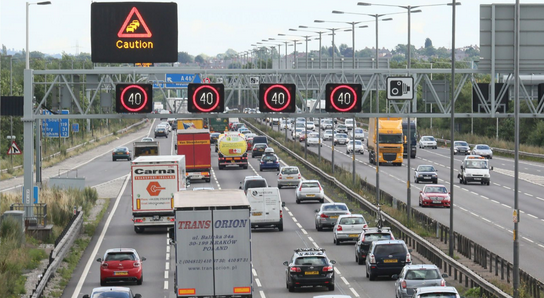The Department for Transport has scrapped plans for new smart motorways, citing current lack of confidence felt by drivers and cost pressures. It also reflects a pledge by the Prime Minister when he was campaigning last year for election as leader of the Conservative Party. However, the possibility of resuming build seems not to be ruled out since cancellation is said to ‘allow more time to track public confidence in smart motorways over a longer period’.
This cancellation is no great surprise, given the existing pause on construction until five years of safety data is available, a response of the DfT to a critical report from the House of Commons Transport Committee. There has also been a succession of reports from coroner’s inquests into deaths from fatal crashes when a broken-down vehicle on the innermost lane, previously the hard shoulder, had been impacted by a moving vehicle. It always seemed unlikely that the safety case could be made sufficiently persuasive to road users for the programme of smart motorway constriction to resume.
The attraction of so-called smart motorways was that an additional lane could be added to a motorway without further land take and without the cost and disturbance of rebuilding the bridges crossing the carriageway. The greater reliability of modern cars provided some justification. Yet the public was not convinced. The reliability of variable message signs used to close the inner lane in the event of a breakdown has been criticised. And while in the past new road construction could credibly be presented as offering safety improvement compared with historic roads, this was not evidently the case for smart motorways.
Cancellation of the current batch of proposed smart motorways raised a major question about the value for money of future road construction. This economic benefits of the forthcoming plans for the third Road Investment Strategy (RIS3) will need thorough scrutiny.

